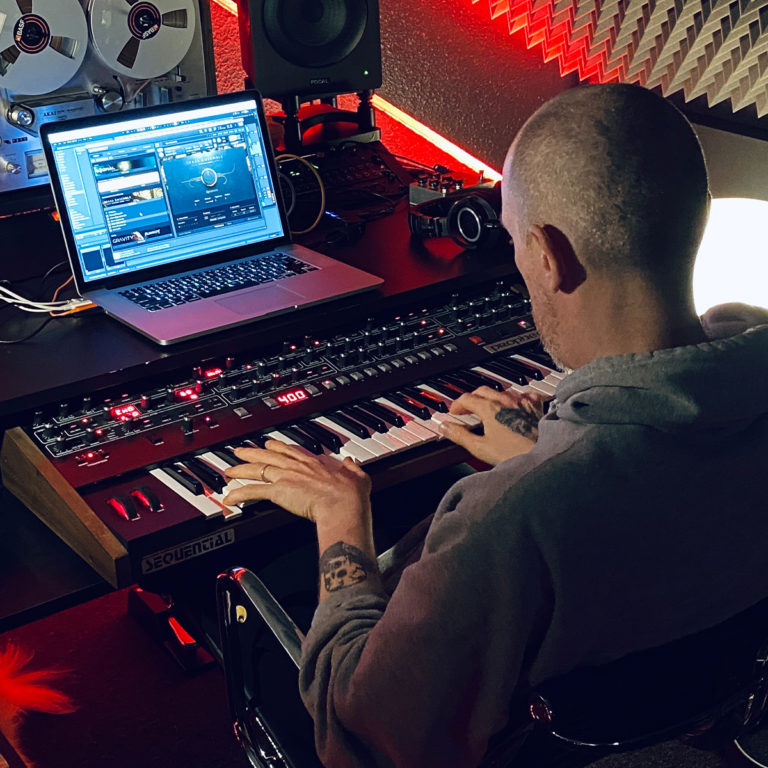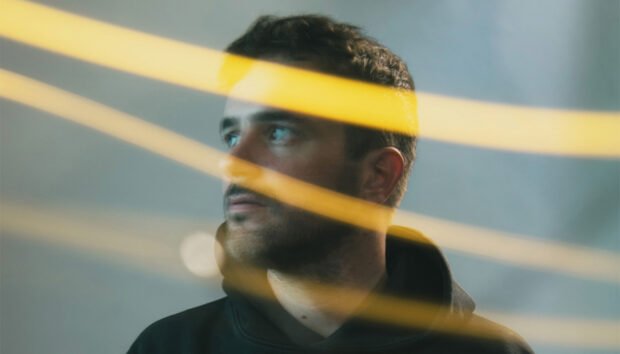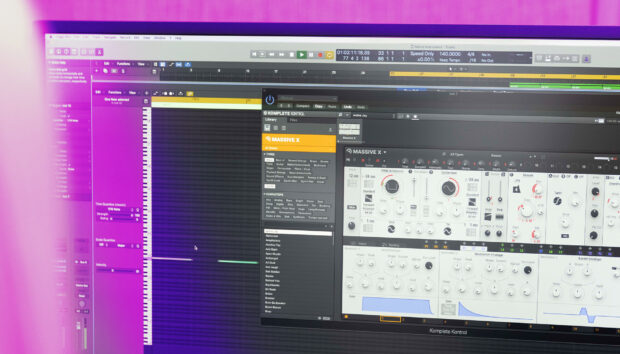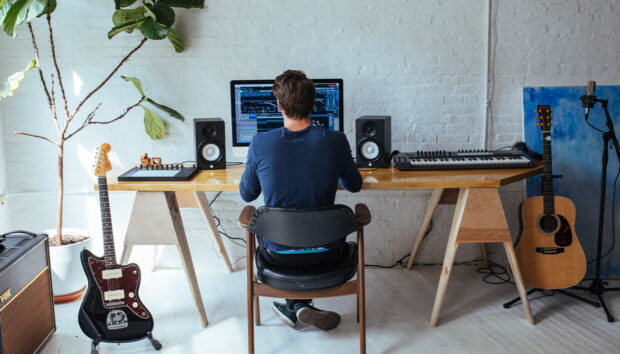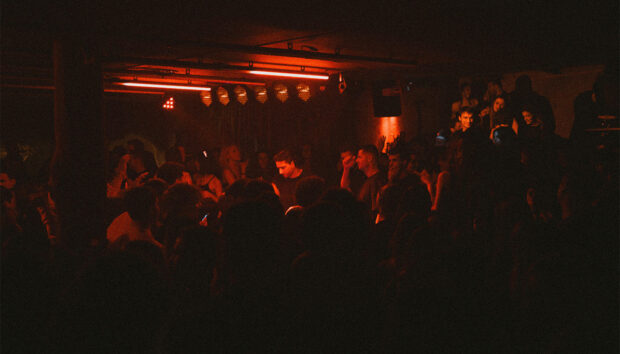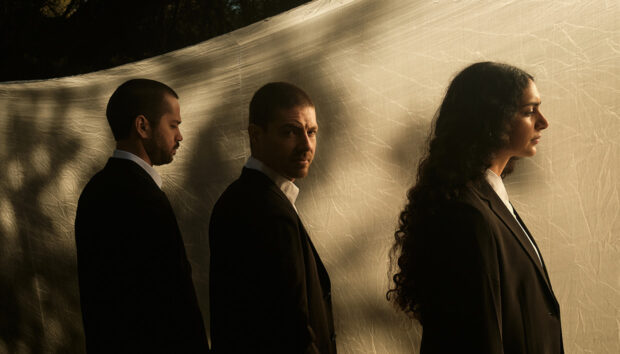French producer UZ is an inexhaustible powerhouse of an artist who has spent the last decade cranking out huge-sounding electronic trap hits – not surprisingly, this grind has also seen him creep into the mainstream rap world, collaborating with Problem, Ice Cube, Trae the Truth, Rome Fortune, and Bok Nero.
It’s been an amazing career arc since UZ seemingly burst out of nowhere in 2012, releasing a volley of cryptically-named tracks on Soundcloud. “In 2011, I was trying to figure what was next for me and I was trying to push my sound in a new direction,” recalls UZ. “I’d recently started a future UK house project called PLEZIER that was getting some good attention from great labels and radio stations, like BBC1, Ministry Of Sound, and Strictly Rhythm. Despite this, I’d always been a huge hip-hop fan, so it was only natural for me to try and start uploading some rap instrumentals on SoundCloud. In April 2012, I broke my elbow in a stupid scooter accident and I was stuck at home, so I began making a lot of music. I wasn’t trying to spend much time on it – it was all very spontaneous and with the flow. Balltrapmusic was born, which I later changed to UZ because I chose an Uzi (gun) as my avatar. I had no idea the project would still be going strong 10 years later!”
Alongside acts like Carnage, Salva, Baauer, and LOUDPVCK (featuring a young Kenny Beats), UZ ushered in a new era of big, bold trap made new by the addition of EDM’s wild synth sounds, crazy bass, and bombastic drops. UZ was quickly picked up by Diplo’s Mad Decent imprint, releasing his groundbreaking “Trap Shit” series before founding his own Quality Goods Records label in 2016. From there on, he moved to Los Angeles and cranked out nearly 200 releases in just a couple years, establishing himself as the masked king of evil trap bangers. Fellow producers and Reddit thread sleuths already knew UZ’s secret identity: Guillaume Barbier aka DJ Troubl, a beatmaker and scratch DJ from Poitiers, France with two World DMC Champion wins to his name. The mask finally came off publicly in 2017, the same year UZ released his Billboard-charting first album, Layers, followed by The Rebirth in 2018.
On October 22 of 2020 , UZ released Trinity, the third in the trilogy and the end of the UZ moniker. Across the album’s 15 tracks, Barbier melds his entire world of influences, from UK bass and big-room house to trap, drill, grime, and turntablism. Exactly a year onwards, he’s just dropped Trinity (Deluxe), a reworking of the album with new remixes and a full-length DJ mix that shows off the impressive scratching ‘n’ blending skills that launched his career in the first place. Barbier also uses a fair bit of KONTAKT and REAKTOR in the studio – from early UZ productions to his funkier new sounds – as we found out when we sat down with him recently to talk the past, present, and future of his sound.
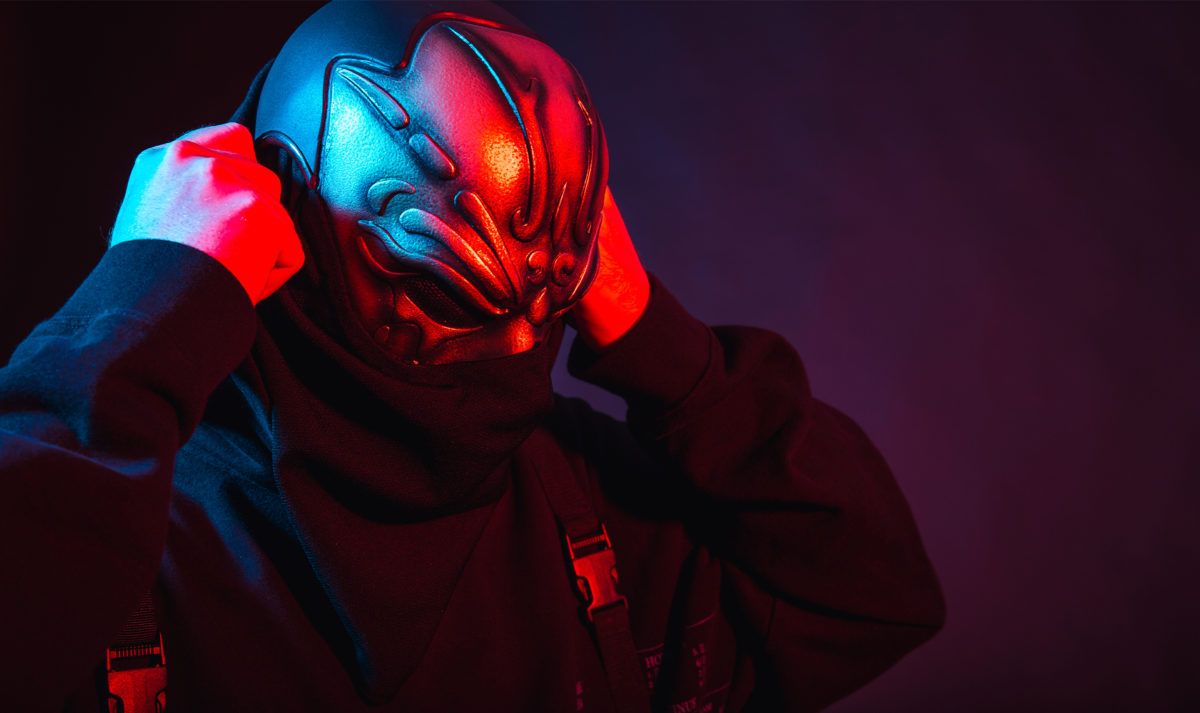
NI: What was going on in your life that led to the creation of UZ, and your initial trap style?
UZ: When I was working on the PLEZIER project, I was listening to a lot of UK-influenced forward-thinking music. Back then, Disclosure only had one track out and were in the process of launching a pre-order for their first 7” vinyl. This was a turning point for me – the music coming out was very new and producers were getting super creative. That emulation helped me craft my music. I also knew a little about Lunice, Morri$, and Flosstradamus, who were just starting to remix trance anthems with trap elements. This was right around the time when dubstep became too noisy for me and I wanted to express myself more minimally. All of these different elements led me to mix these influences and give them my own twist so that they sounded unique. I kept the music and melodies pretty simple but got technical on hi-hat patterns, for example, to try and make them sound like scratching patterns.
What did your original studio setup look like when you started making trap music, and what it look like today?
I actually started making trap many years before creating the UZ alias. I produced an album for my good friends ANTIHERO, wherein you can hear some of my early trap music. It was more so influenced by artists like Rick Ross, etcetera. My set-up was pretty basic at that time. I used a laptop, Cubase with a bunch of NI plugins, and a Microkorg. For a couple of years after I launched UZ, I had pretty much the same setup with more analog gear like drum machines and synths because I was also making funkier music… which never left my studio. Prior to moving to the U.S., I sold all my gear because I wanted to pack light, but I really regret that decision to this day. Today, my setup has evolved a lot. I switched to a MacBook Pro with Ableton 11 and I bought back some analog gear, like the Prophet V, Rhodes electric piano, and a Digital Roland eDrum set.
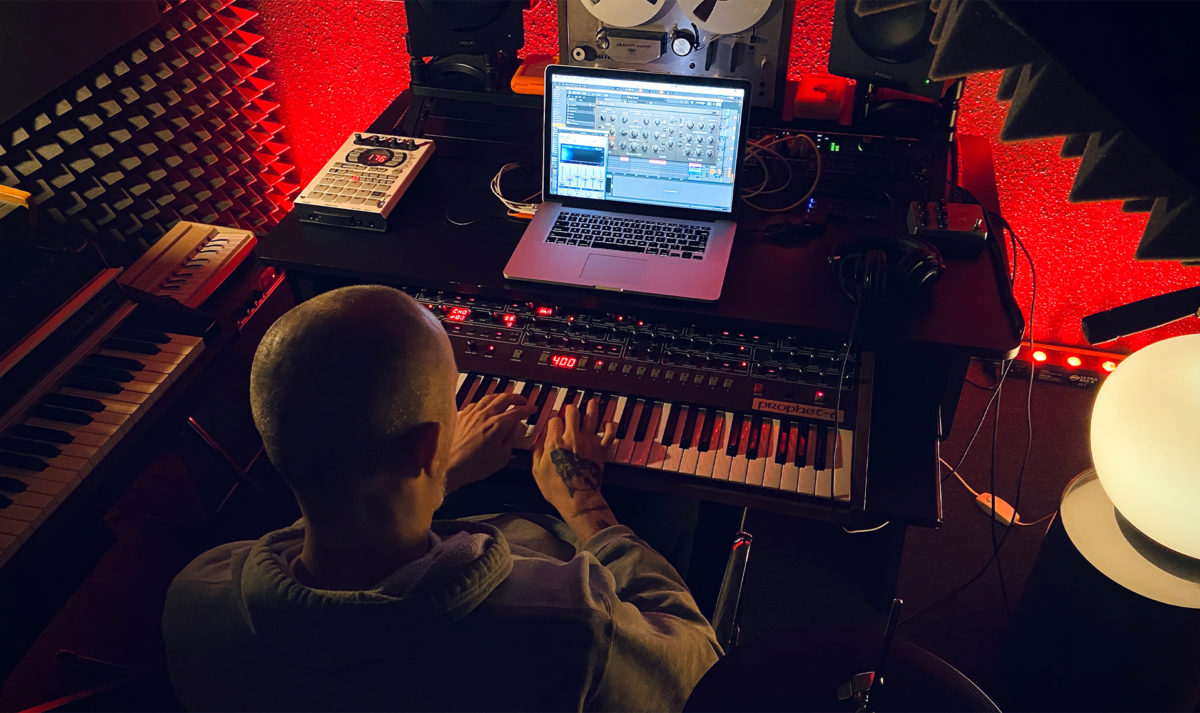
You’ve used NI”s REAKTOR and KONTAKT frequently in your UZ productions. What’s your favorite thing about working with those instruments?
Reaktor and Kontakt played a huge role in establishing my sound at the beginning of UZ. Reaktor is a great resource to find unique sounds and FX as well as giving you endless possibilities by creating your ensemble by using Blocks, just as you would with a modular synth. You can create just about anything you want and share your creation in the Reaktor User Library online. That’s how I found one of my favorite FX: VHS Audio Degradation Suite.
Kontakt was also used a lot as my main sampler, which helped me during my pitch-bending samples phase. Kontakt is great and allows you to add so many amazing libraries. My go-to for UZ was 808 Warfare for years. Kinetic Metal is great for original percussion sounds, and Evolve Mutations for weird and unique sounds. The best horns I have used are from the Symphony Series Brass Ensemble. All the Output libraries are great too: Exhale, Arcade… Nowadays, since I am in a more “organic” mode, I am more into the Scarbee Rickenbacker bass, Evolution Strawberry and, of course, all the libraries from Native Instruments!
From a production standpoint, what do you think truly defines the UZ sound and style?
UZ was really a spontaneous project. I didn’t think about how it would develop or even a marketing strategy. I just wanted to make music that was minimal, yet technical, using simple and unique elements. I just wanted to be me, I guess. A great balance between dark, minimal, heavy and danceable. I know one of my specialties was the way I arranged my hi-hat patterns, snare rolls, and simple melodies using unique sounds. I know it’s been imitated a lot in the past years, and it is an honor to be deemed one of the pioneers of electronic trap music.
Now that the deluxe edition of Trinity is done, and UZ is no longer your primary focus, do you have any more updates on your new direction? What’s inspiring you currently?
I’ve always been a huge fan of hip-hop. I have always listened to and analyzed the work of producers like Madlib and Jaydee, and researched what music inspired them for sampling or listening purposes. Seventeen years ago, I did a mixtape celebrating Madlib’s sample work on his infamous Quasimoto album, digging for all original music and bits he sampled. During last year’s lockdown, I was working in a studio filled with musical instruments – guitars, bass, drums, analog synths – and wasn’t really trying to use them. One night I dreamt of a song, woke up in the middle of the night, and tried to remember it. It was analog, funky, vibey – very different from what I usually do, but it was amazing.
The first thing the next morning, I went to the studio and wrote the track that was stuck in my head using instruments and other sounds from the Kontakt library. That was kind of a revelation that brought me back to the roots of the music that my favorite producers used to sample. Then I started writing instrumental music strictly in that same jazz/funk vibe and started my new upcoming project. It is more mature, and I think it better fits my mood right now. It’s mainly inspired by ’70s library music (music they would use in TV shows and movies), as well as artists like David Axelrod, Serge Gainsbourg, and Marc Moulin.
Quality Goods Records is very linked to the UZ brand. What will its future look like?
Quality Goods Records was created mainly so that I could release my own music, as well as release music from young and talented artists. Since I am the A&R, I tend to pick music that speaks to me and aligns with the same vibe as my music. Nowadays, I am looking for different stuff. We like to push the boundaries and always work with the most forward-thinking producers. We are also opening our doors to chiller music. We all grow up, and I realize as much as I like heavy stuff, sometimes I really enjoy a more vibey track – that’s why we created the Quality Vibes series. We have a lot of great music and things in the pipeline and are always excited for what’s to come. We might even open a different branch to release more jazzy music and even launch my new project… Who knows?
What were some of the biggest moments for you personally as UZ, and what are you looking forward to moving forward?
UZ has allowed me to do what I love. I was already making a living with music before, but it really took me to the next level! I have been able to meet some of my inspirations in dance music, travel the world many times, play the best venues and festivals around the world, and meet with the fans. I’m also very proud of being one of the pioneers of the electronic trap movement and influencing a whole generation of producers. I cannot count how many artists told me they started producing because of me, and hearing that is and always will be a true honor. Also, creating Quality Goods Records with my life partner was a real accomplishment and a great feeling. Building a platform and helping artists to release their music and grow their career is something special. I am looking forward to growing that platform and helping them be as or more successful than I was able to be. Now that UZ is behind me, I will concentrate on my new project, and maybe learn music theory, so I can play instruments better and write my best music yet!
UZ’s Trinity (Deluxe Edition) is out now on Quality Goods Records.








